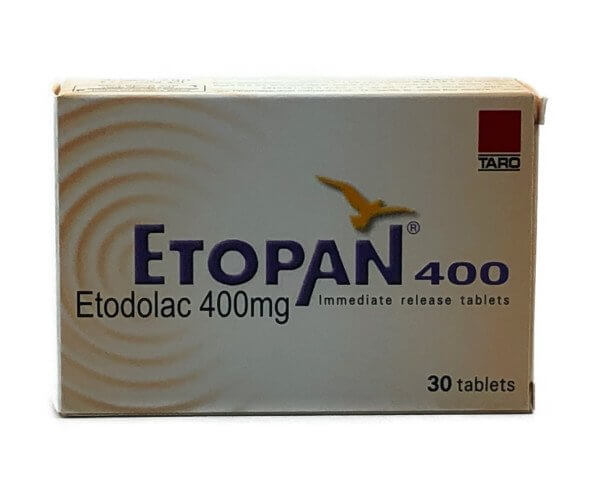Lodine,Lodine XL
$ 14.00 – $ 55.00
Etodolac is a type of medicine called a non-steroidal anti-inflammatory drug (NSAID). NSAIDs are used to relieve pain and inflammation.
Etodolac works by blocking the action of a substance in the body called cyclo-oxygenase (COX). Cyclo-oxygenase is involved in the production of various chemicals in the body, some of which are known as prostaglandins. Prostaglandins are produced by the body in response to injury and certain diseases and conditions, and cause pain, swelling and inflammation. Etodolac blocks the production of these prostaglandins and is therefore effective at reducing inflammation and pain.
Brand Manufacturer: Order – August 26, 2024 @ 04:04 PM
Side Effects: Stop taking the medicine and contact your doctor immediately if: you experience indigestion or heartburn. you experience pain in the upper abdomen, vomit blood, notice blood in the stool, rectal bleeding, intestinal inflammation, mouth ulcers. you suffer from allergic reactions such as rash, pruritus, skin blisters, loss of color (pallor), swelling, wheezing or shortness of breath. aseptic meningitis occurs (neck stiffness, headaches, nausea or vomiting, fever, disorientation); this effect has been reported mainly in patients with systemic lupus erythematosus or other mixed connective tissue disease. Stevens-Johnson syndrome occurs (very rare), dermatitis or skin blisters, mouth or tongue and/or ocular inflammation with increased photosensitivity, which can be severe and accompanied by general feeling of being unwell. 6 Additional side effects: Nausea or vomiting, diarrhea, flatulence, constipation, worsening of colitis or Crohn’s disease Gastritis Pancreatitis (very rare) Swelling, high blood pressure and heart failure Fever, weakness, sensation of malaise, shortness of breath, abnormal vision, headache, abnormal sensation e.g. burning or tingling of hands or feet, depression, confusion, hallucinations, ringing in the ears (tinnitus), dizziness (including vertigo), fatigue, tremor, sleeping difficulties (insomnia), drowsiness Anemia, sore throat, fever, unexpected bleeding Yellowing of the skin or the white part of the eye Increased urinary urgency, difficulty upon urination or urine discoloration Changes in liver function and blood changes – can be detected only by blood tests Vascular inflammation (vasculitis) Rapid heartbeats (palpitations) Slightly increased risk of heart attack or stroke.
Indication: For the management of signs and symptoms of osteoarthritis and rheumatoid arthritis.
Reviews
Write a review
The product has no reviews
Leave your review

